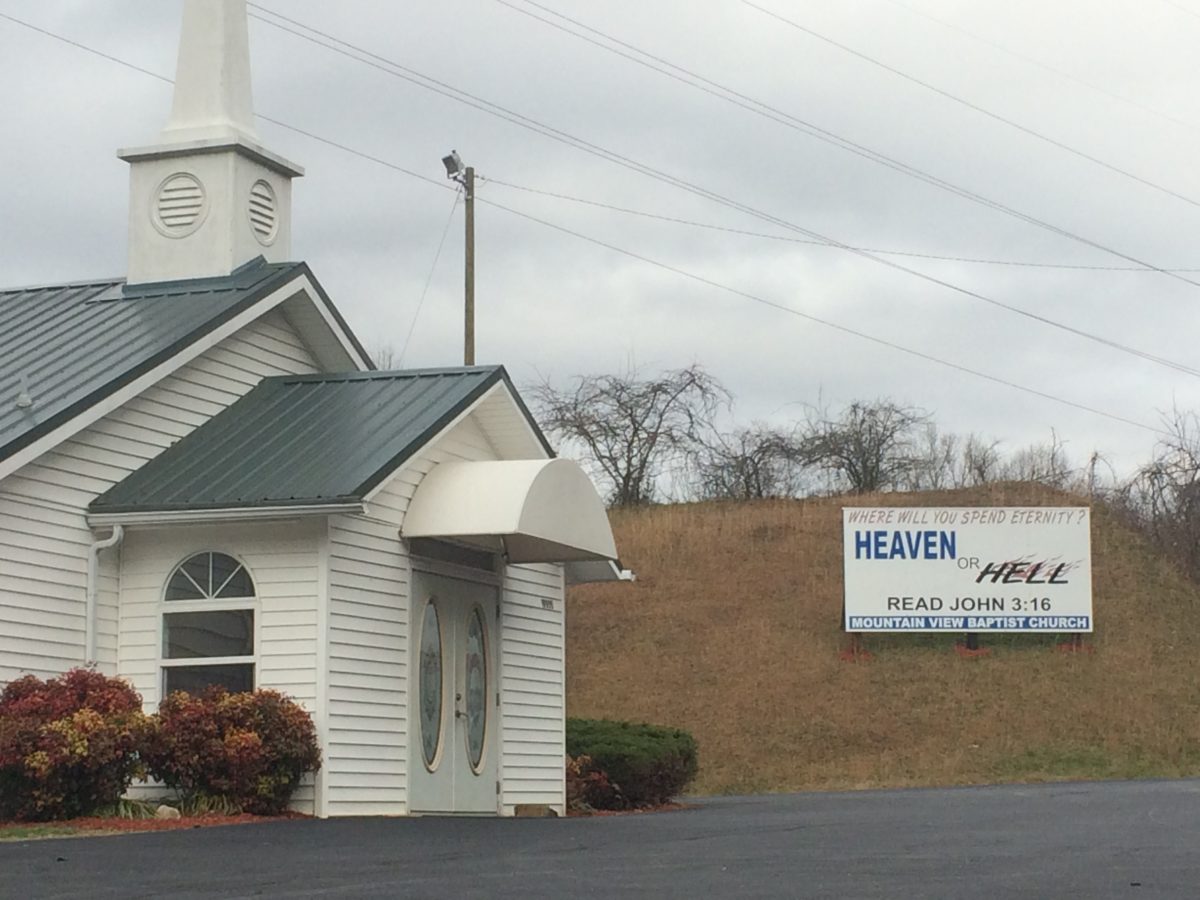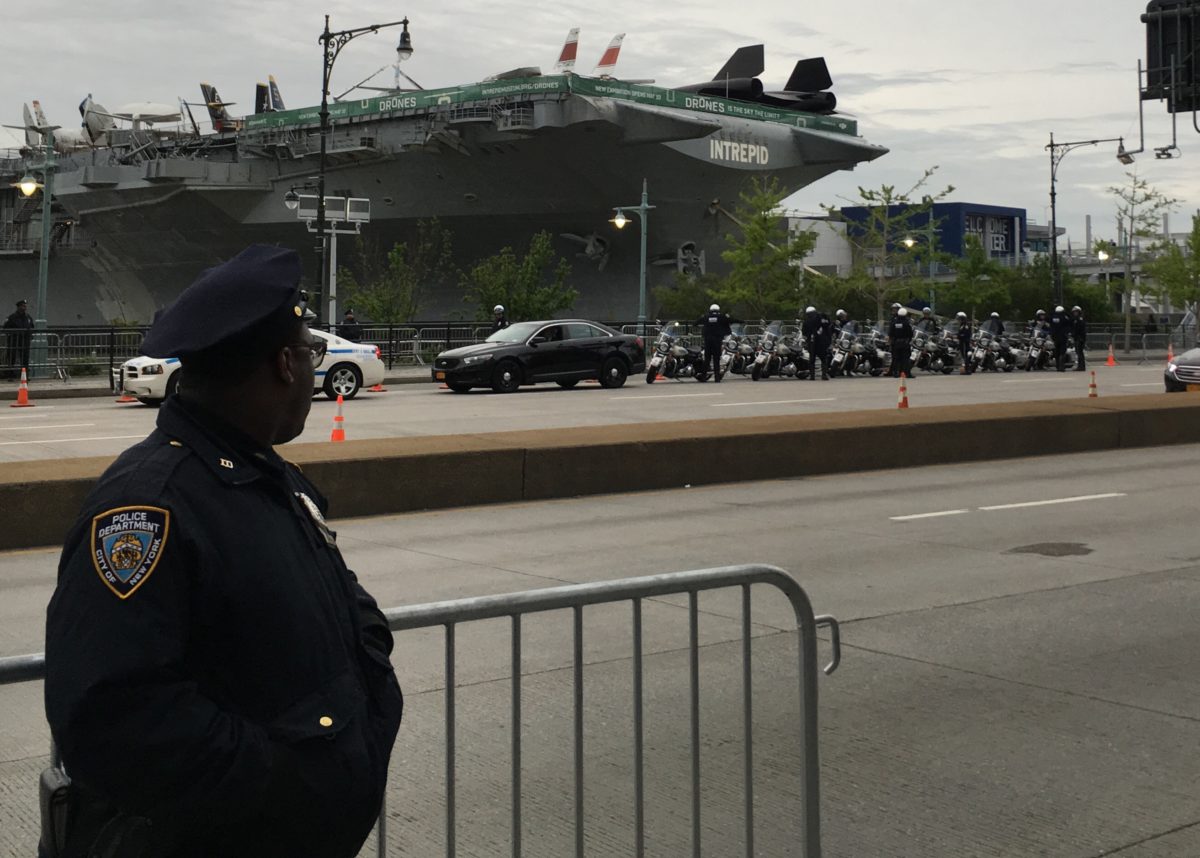Author: James
The Hands of Leroy
At least ten thousand hours must have passed during the moments wherein Leroy’s eyes, glazing, caressed barred moonlight shining through his cellar door, waiting for nothing.
Lurching through the dirt, Leroy dragged on a raincoat and drifted to the wall where repeated memories pinned bleached white linens on lines, sagging in the shadows.
With rigid hands, the pins were released from the ceiling, through which steady lamp rays glared down on him.
Leroy, with a sigh, cast into the basket the efforts of this day and crawled upon the staircase, as high as he should go. Quietly, he crossed himself, looked sidelong down the hall, and once again descended to that low, dark place of his – that sunken hole where headlights were his daydreams, self-awareness, longtime friends who came to visit, and curious observers who, meandering, scanned across each tickmark, scratched upon the wall.
There, alone is where he paced until a shrieking bade his call. Fighting tears of agony, Leroy called up to the voice:
“Yes, mother?”
“The stains are out, but did you wear your raincoat?” she demanded lightheartedly.
“Yes, but I–”
“You will clean them again,” ordered the unforgiving voice. “And I should hope Father returns home quite unaware of this.”
Leroy’s hot heart fumbled for a tempo when his hands began to sweat. Headlights on the staircase! Happens once a day!
With pocketed mittens grasping through his jacket all the sheets he could, stumbling through the darkness, tripping through old mud, Leroy threw up his bare hands to catch hold of loose wood. In a panic, he saw black scratch marks ripping through the light. The sheets! Filthy from his Germs.
No dinner was served, no laughter heard, not even the sound of stomping – the stomping of goodnight. Just a boiler’s timely click, and two orange flames flickering on like the toxic, dead white eyes of delusion: A wall with a mouth hole for a bed, where Leroy found solace from the harsh staring of the blank rock walls that stood tall all around him. And before crawling into the maw, the hand of Leroy etched, with split and bleeding knuckles, another tired line into the stony face of his crumbling friend, his cracking smile.
Protesters crowd New York streets on President Trump’s first visit home
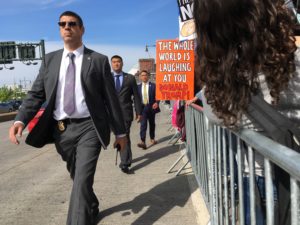
NEW YORK – Donald Trump returned to his home city on Thursday, for the first time since becoming President of the United States.
Demonstrators appeared at the Intrepid military museum, a decommissioned warship docked in lower Manhattan, where President Trump met right-wing Australian Prime Minister Malcolm Turnbull.
As people outside chanted “New York hates you,” Trump and Turnbull participated in a ceremony to commemorate the Battle of the Coral Sea, a joint effort in the Pacific between the US and Australia during World War II.
Approximately one thousand protesters gathered to protest Trump administration stances and policy.
Audio from the protest
Afterward, Turnbull and Trump were scheduled to play an evening round of golf on a Trump course in Westchester.
Fewer than one in five New Yorkers voted for Trump in the 2016 election.
Ban on public feeding suspended in Fort Lauderdale
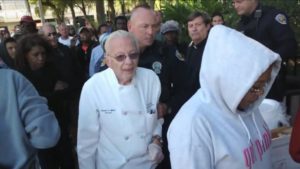
FORT LAUDERDALE, Fla. — A judge in Florida suspended Fort Lauderdale’s ban on feeding the homeless Tuesday, calling for mediation on the issue. A city ordinance passed October 21 made it a crime to feed the homeless in public, carrying a possible penalty of jail time plus a $500 fine. As members of the public prepare for court appearances throughout the month of December, many of them continue to serve food in spite of what they say is an unjust law.
The ordinance, now suspended for 30 days, said people cannot be fed in public throughout the city unless bathroom facilities, such as portable toilets, are also made available, but the ordinance does not stipulate who should provide those facilities. And although Mayor Jack Seiler says the ordinance is designed to help the homeless by mandating on-site bathroom facilities wherever food is served, volunteer and advocacy groups argue the ordinance is an attack on the homeless, rather than a solution to the conditions which brought them to Stranahan Park.
Fred Morrison, professor of law at the University of Minnesota, said in a December 1 interview that public parks are open for free speech – including symbolic speech – which he said is “certainly a part of free speech.” On the other hand, he said the city can make what are called ‘reasonable time, place and manner’ restrictions on it.
“So they could designate parts of the park as ‘no eating,’” he said. “And certainly if the regulation is intended to suppress a viewpoint, that would appear to be contrary to the First Amendment.”
Whether the regulations are being used to suppress free speech is a matter that will be decided by courts.
Fort Lauderdale is not the only city potentially facing homeless feeding restrictions. On November 3, the Associated Press reported that more than 30 cities across the United States have tried to introduce laws similar to Fort Lauderdale’s in the past two years, quoting a statistic from the National Coalition for the Homeless. Members of the Richmond, Va. chapter of Food Not Bombs, a food sharing group with anti-war messages, fear their Monroe Park location in the city could be next in line to face restrictions similar to those imposed on Fort Lauderdale, affecting Stranahan Park.
Erika, a Richmond Food Not Bombs activist who declined to give her last name, said she and her group heard about the November 7 arrests of South Florida Food Not Bombs activists, but expressed no surprise.
“We have a history of always getting arrested for this,” she said. “But in fact, lately, it’s been kind of quiet, until now.”
Erika and Vernell Gaines, another member of the group, said they are concerned about a proposal by Monroe Park Conservancy to privatize control of the park after the city leased it to the conservancy for 30 years at a dollar per year. In a blog post, Richmond Food Not Bombs member Mo Karnage said the plan includes a list of ‘acceptable activities’ in the park, and those who qualify could then apply for a permit costing $35 per event.
“Every Sunday, we would have to go in advance and buy this thing,” Erika said, “which is just ridiculous considering we don’t make any money. If anything, the people involved have put their own money into things … so it’s crazy that they would want to charge us to provide a free service.”
Micah Harris is a Fort Lauderdale volunteer, and Vice President of the Peanut Butter and Jelly Project, which provides meals to the homeless. In a November 18 interview, Harris said he and his organization have helped 41 people get off the streets since February. One of the biggest problems he said his organization has with the ordinance is its portrayal by city officials as a legitimate response to health hazards.
“They’re hiding behind the news as being a health issue, when in reality they don’t want to see homeless people,” Harris said.
Harris said he thinks if public defecation is the main focus of the ban, as he said the city suggests that it is, then the city should be responsible for providing more public restrooms, not volunteer organizations feeding the poor.
“If public defecation is an issue, the city should be required to provide more adequate restrooms for people to use, whether it’s porta-potties, whether it’s building other facilities or not.”
Harris said homeless people frequent Stranahan park because the space is located 300 yards from a prominent public transportation hub, and 100 feet from the public library.
“When you have shelter, Internet use, bathroom use, and a library which can’t be denied to anybody, and you have a hub of public transportation, then unless by chance they move all of that somewhere else, they’re not going to get rid of what the ‘eyesore’ is,” he said.
Seiler has since reiterated the city’s position in a November 26 interview with WPLF Local 10, in which he said the ordinance is meant to help the homeless, and in a December 2 interview with the Sun Sentinel, in which he said he would prefer to enforce municipal ordinances, in response to the Tuesday suspension of the public feeding ban.
“The whole goal has been for the city of Fort Lauderdale to assist the homeless here in Fort Lauderdale, to provide the appropriate resources, facilities and locations for them to get the aid they need,” Seiler said.
Harris called the treatment of Fort Lauderdale homeless “sad.”
“The mayor goes on TV and acts as though there are all these places where they can go, and there’s not,” he said. “There really isn’t.”
Arnold Abbott, the 90-year-old chef and World War II veteran whose November 3 citation put international focus on the Fort Lauderdale ordinance, is the ideal face of homeless feeding advocacy, according to Harris. News of Abbott’s citation, and subsequent citations – now up to four tickets, as of December 1 – went viral when a link to a November 3 WPLG and CNN report was voted to the front page of reddit, a news aggregation website.
Abbott and his group, Love Thy Neighbor, have been feeding the homeless for 23 years, defying past bans. Harris said Abbott advocates feeding the homeless for the right reasons, adding that Abbott is both genuine and authentic.
“You got your martyr,” Harris said. “What better face could you have, to fight this, than a 90-year-old war veteran that fought for civil rights, who started a nonprofit organization in the name of his deceased wife? … That’s the face you need.”
On the day of Abbott’s initial citation, WPLG and CNN quoted his description of the police encounter: “One of the police officers came over and said, ‘Drop that plate right now,’ as if I was carrying a weapon,” Abbott said.
Aaron Jackson, president of Planting Peace, a humanitarian aid project, said in a November 19 interview that Fort Lauderdale police process citizens on location, gathering the same information about them as if they were brought into the station – including mobile fingerprinting – and then they let people go.
Jackson, who himself was cited November 10 for giving away free pizza in front of city hall, said although he was processed, he does not feel like a criminal.
He said the city hall demonstration was symbolic of community groups’ refusals to back down. He said during the five years he spent as director of an area homeless shelter, he had seen the city pass laws against panhandling at medians, and observed Broward County police officers shifting the homeless population between cities.
“There’s veterans, there’s people with mental health, schizophrenia – things of this nature – all through the streets of Broward County and Fort Lauderdale,” he said. “And to outlaw our ability to bring help to them is just absolutely ridiculous.”
Jackson said Seiler’s plan for the homeless to go where the ordinance permits them to be does not take mental illness into account.
“When I was director of the homeless shelter, we had [schizophrenic] people who were afraid to go inside the homeless shelter. There was too much paranoia,” he said. “They had to go out, and we had to bring services directly to them.”
Abbott sued the city and won on religious grounds in 1999, when a similar ordinance was passed. Abbott and others say it is their religious duty to care for the destitute.
“We will continue as long as there is breath in my body,” Abbott told the Sun Sentinel on November 9.
Harris said members of his organization, including his wife, considered facing arrest, following the November 7 arrests of three members of South Florida Food Not Bombs, but he said they soon backed out.
“We’re not going to put ourselves in a situation where our son sees either one of us put in handcuffs and taken away,” Harris said. “I would never do that to him. That’s traumatic. It’s counterproductive.”
Harris described his interactions with Fort Lauderdale police as uniquely positive, however. He said he considers them part of the community, now as well as before the ordinance. He said before the ordinance went into effect, the police came by Stranahan Park and he shared his water with them. He said they did not bother anyone and have been cordial, even while issuing citations.
“It’s not a cop thing,” Harris said. “We’ve never been the type to fight the police or fight the system like that.”
Jackson said that the police have been “kind,” as they carry out their duties and citations. He said they have not been rude and they are only doing their jobs. Jackson said he thinks even the police believe prohibiting charity is “ridiculous,” which is why they mainly issue citations and let people go.
“And in this instance, they let you go, oddly enough – which is kind of funny – and it goes to show just how ridiculous this is if you really think about it,” Jackson said. “Once they issue this citation, they let you go. They let you continue feeding. What other law could you break– If I was robbing a store, and the police came in and stopped me and arrested me, would they then just let me go and continue to rob the store? No.”
Jackson said he observed that the police, after writing out citations, stand around the area but do not say anything and stay out of the way until the feeding is over.
Morrison said the police are measuring to see if judges decide the ordinance is valid before proceeding with duty. He said waiting to do a more thorough enforcement of the ordinance until after the first court cases have been heard seems to him like a reasonable act of police discretion.
“They don’t have to give you a ticket if you’re driving 31 in a 30-mile-an-hour zone, but they could,” he said. “And they don’t have to give these people a ticket. They are, in a sense, already on notice, and the courts are going to have to decide this.”
Harris said he was not present during the initial Food Not Bombs arrests, but said those members arrested November 7 took over a pavilion at the center of the park for which a permit must first be obtained before holding public events. He said they did so with the intention of being arrested and he did not like to feed into what he perceived as the media’s inclination to report arrests when more people were being cited than arrested.
“They wanted to get arrested,” Harris said. “They were looking for it.”
South Florida Food Not Bombs member Haylee Becker said in a December 1 interview that she did not want to get arrested and would not describe the police at that time as ‘cordial.’
“At least they weren’t while they were arresting them,” Becker said, referring to the three activists arrested in Stranahan Park as she stood nearby. “They were calm. They were doing their job.”
A November 26 report by WPLG said there was no apparent police presence at Abbott’s day-before-Thanksgiving public feeding on the beach, however plainclothes officers were in attendance, and issued citations to offenders by mail.
The WPLG report did not clarify how the Fort Lauderdale Police Department knows which individuals to cite, and the department has not responded to numerous, repeated inquiries for more detail.
Becker said that although South Florida Food Not Bombs has given out food for two weeks without police intervention, police officers shoot video and photograph her group from various directions.
“Every Friday we’ve been sharing food since 2006 in that park around that time,” Becker said. “Our intention was not to get arrested. Our intention was to share food every Friday and unfortunately, there was a law.”
Morrison said the difference between the South Florida Food Not Bombs encounter with police and the Planting Peace encounter is only in the tone of the confrontation, and has no bearing on the law or the legality of the activities for which they were issued citations.
“This is just probably the tone and tenor of the confrontation,” he said. “It doesn’t change the underlying law at all, and it won’t change the underlying result, either.”
While Fort Lauderdale city officials passed a ban on public feedings, and promoted the ban on a public health platform, Richmond, Va. city officials cite public safety as their motivation for relinquishing control, but not before contributing $6 million dollars to its renovation – before a privately controlled entity takes it over – according to the terms of the lease.
Safety and security are recurring themes of the approved Richmond plan, as introduced by Monroe Park Conservancy President Alice Massie, which proposes the replacement of trees in the park, new lights and the addition of bistro-style cafés and food carts. Of interest to Food Not Bombs and others who feed hundreds of people in the park each week, the plan Massie introduced would require a minimum 75:1 “ratio of non-homeless users to apparently homeless ones” in order to attract more women to the area, the conservancy document states, because “women tend to be more acutely aware of disorder than men, and throng to spaces that seem completely safe.”
Gaines said it was clear that Massie wanted support at a March 18 city council hearing when the plan came up for discussion, during which safety – particularly that of Virginia Commonwealth University students – became a point of contention.
“Pretty much they were trying to get people to come up in there and talk like, ‘Well, all the people that walk around the park, who are usually there, are an issue,’ but we actually got some VCU students to come up there with us and say how they felt about everybody,” Gaines said. “They said they don’t have a problem with it because everybody minds their own business. There’s never problems in the park, really.”
The plan also proposes a privately managed, semi-permanent market that would run along the north-south spine of the park, spaces which organizers can rent “with little initial expense.” Additionally, the plan, once it moves forward in Fall 2015, is to hire event staff, a maintenance crew, program and event managers, and private security. The security force is the largest planned expenditure during the first year of the published five year plan. The plan states security forces will call upon VCU and Richmond police to enforce new rules.
Finally, although the privately backed conservancy plan acknowledges the existence of homeless feeding programs in Monroe Park, the paragraph concludes: “The homeless presence in Monroe Park poses an impediment to increased park usage.”
There are various decisions about ordinances prohibiting aggressive panhandling which causes people to fear for their safety, Morrison said they could be prohibited.
“If it’s just someone saying ‘I’m hungry and I’m homeless,’ then it can’t be prohibited,” he said.
In both cities, Morrison said the conflict is partly ideological.
“There are people who would like to have parks look like nice gardens,” he said. “And there are people who would like to have the parks be public spaces. Both of those dreams are present in our culture.”
Streets and parks are places where the Supreme Court has said people have a right to demonstrate, Morrison said. And although giving away food is a protected form of free speech, it can still be limited by regulations, but not totally prevented.
“I think the city could say, ‘there will be no food in city parks,’ but that has to shut out the picnickers, too,” he said, “because you can’t take one class of people and say, ‘there will be no food for this class in city parks.’”
All media requests to city hall regarding the Monroe Park Conservancy are forwarded to Tamara Jenkins, city recreation coordinator. She declined to answer questions about the conservancy, the terms of their lease, or how the public will be expected to interact with the park through the conservancy.
Richmond Mayor Dwight Jones sits on the executive board, as well as Robert “Bobby” Scott Ukrop, president of Ukrop’s Homestyle Foods. Neither Jones nor Massie responded to numerous, repeated requests for comment.
Morrison said the city could require anyone feeding more than 50 people at once to require a permit, for example, because a ‘reasonable time and place’ argument could be made that it is an unusual use for the park and a permit would be required to make sure there are not too many people in the same space, but he said he does not see indications such a plan is being talked about, at least in Fort Lauderdale.
Food Not Bombs, an international group which maintains a presence in both Richmond and Fort Lauderdale, sets itself apart from other food sharing groups with focused, anti-war messages. The first full sentence on the group’s official website is a Martin Luther King, Jr. quote promoting a shift of public funds from the military budget to social programs. Many Food Not Bombs chapters even offer free anti-war literature at their tables.
It was for that reason – not for feeding the homeless – which Keith McHenry, the group’s founder, said he was first arrested in San Francisco’s Golden Gate Park on August 15, 1988. McHenry is currently based out of Santa Cruz, Calif.
“They said we were making a political statement, and that that was not allowed,” McHenry said in a November 4 interview. “They didn’t mind that we were feeding the homeless. It was this political statement.”
However, an August 17, 1988 Los Angeles Times report quotes Police Lt. Rich Holder as saying the group was “in violation of the Health Code, the Park Code and the Penal Code.” The report states McHenry’s group was at one time told to dispense food at a nearby church, where required sanitary facilities were available.
“In addition to expressing views, Food Not Bombs is also distributing food,” Morrison said. “There may be legitimate reasons to control the distribution of food, like sanitary controls … Another is ‘time, place and manner.’ You could tell them ‘you’re not going to do this between midnight and six in the morning.’”
In Orlando, Fla. an ordinance was upheld by a federal appeals court, in which the court decided the city’s restrictions on feeding the homeless in public were constitutional. The Orlando Sentinel reported on April 12, 2011 that the U.S. District Court of Appeal for the 11th Circuit in Atlanta found the feeding ordinance did not violate the constitution because it still technically allowed people to feed the homeless in public parks, but limited legal public feedings by requiring a new permit for each feeding, and only allowing a group two permits per park each year.
“The precedents for this are a bunch of cases that come out of the civil rights movement in the 1950s and 1960s, which the U.S. Supreme Court said these are what are called ‘public forums’ and they are available for the public to express their views.”
Like many groups from the civil rights era, documents obtained in 2011 through a Freedom of Information Act request by McHenry show that an informant with the FBI monitored and reported Richmond Food Not Bombs activity.
The documents, under the heading ‘Counterterrorism,’ show FBI surveillance spanning two years between October 2003 and November 2005, and include a compact disc loaded with images shot during a war protest.
The documents explicitly describe Food Not Bombs planning meetings, items hidden in the homes of certain members, and profiles their various agendas, which included Iraq war protests and protests against state and federal governments, as well as against the activities of Eugene Trani, former president of VCU. The documents also name and describe individuals, vehicles they drove and the political philosophies of various participating parties.
The documents show the case was closed after the investigation failed in 2005 to connect a specific member of the group to vandalism of the General Lee monument at the intersection of Monument and Allen avenues.
Karnage said the investigation took place before she joined the Food Not Bombs program in 2006, and while she says the figures being investigated by the FBI still live in the Richmond area, she does not know who they were.
Writing Their Way Out
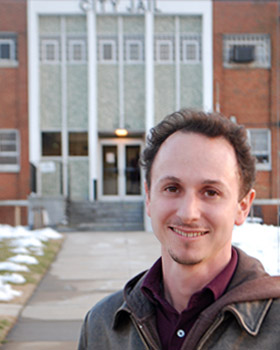
The smoke-filled writers’ rooms as seen on TV and depicted in books – even those where we work – all share a few similarities. Many are littered with papers, pictures, notes and reminders hung on the walls. Some workshops bear striking resemblance to the cubicle wastelands of “Office Space” or the fluorescent nightmares of Chuck Palahniuk’s “Fight Club.” Some are even racially homogeneous, or populated only by men. But rarely do we learn about the writers’ room where every writer is incarcerated, where laws command them to stay.
Such is the case at the Richmond City Justice Center – formerly known as the Richmond City Jail – in Virginia, where Dr. David Coogan and his colleagues have spent the last four years conducting Open Minds, a writer’s workshop that gives inmates the opportunity to develop their memoirs in a safe zone – a place where confined men are free to explore themselves – and document the long, unbroken chain of events that brought them to this room.
“I had a hard time believing that they were not like me,” Coogan said. “I refused to put them into a ‘they’ category. I figured some of them had to be inquisitive, intelligent, creative – not all of them, but some of them – would have to be like me, or the students I meet at VCU, and would want to write their ways out of the lifestyle that got them there.”
Coogan said his current line of work began as an exploration. “I wanted to see if writing could help people change their lives,” Coogan said, “and I thought, ‘I have the resources. I have the motive. I have the time. I have the incentive.’”
Coogan’s incentive became the muted public reaction to a gang-rape which took place near his home in the city.
“I was overwhelmed at – not so much the crime itself – but the reactions to the crime,” he said. “What really floored me was that nothing was being done about it.”
Coogan said he wanted to do something. His response, from the perspective of a writing teacher and scholar of public rhetoric, “was to inquire: What is the cause of crime? And are there some people who get caught up in crime who don’t know why, and want to know why?”
He began volunteering through Offender Aid and Restoration in 2005. OAR is a nonprofit organization working with ex-offenders in the downtown area. While there, a case worker suggested he take his ambitions to the jail where he could start teaching writing.
“And she said, ‘If you really want to find out if writing can help people, you should start there.”
An estimated two-thirds of released inmates are rearrested within three years of release, according to a 2005 report published by the Bureau of Justice Statistics, a federal agency that tracks criminal justice statistics. After five years, statistics show three-quarters of released prisoners are rearrested.
Coogan, however, knows the more higher education a person gets in prison, the less likely they are to return to crime.
Virginia Commonwealth University, where Coogan is an associate professor, will soon offer scholarships to students under Open Minds whose work stands out.
“They can come to VCU and take a couple of classes for free on their release,” Coogan said, adding that the school will announce more details at a later date.
Though a scholarship may present significant opportunities to writers emerging from Coogan’s workshop, there is still more to be done – or undone – for communities belonging to inmates of state and federal prisons.
Coogan said there are at least two angles from which the community can approach recovery and reduce recidivism.
“I’m very much concerned with the individuals who want to work from where they are in their lives and in their writing,” he said, “but I’m very concerned with the larger structural problems that our society has not fixed.”
Coogan identified what he described as a major obstacle to ex-offenders who, as a result of their incarceration, become ineligible for Pell grants: Through a provision of the 1994 omnibus crime bill signed into law by President Bill Clinton, anyone who has served time in a state or federal prison may not receive the federal Pell grant for higher education.
Dallas Pell, daughter of the late Claiborne Pell after whom the grant was named, told the Washington Post in December she asked Congress in October 2011 to reinstate Pell grants for prisoners, but made little progress, calling it “an emotional issue.”
“When people get out of prison, the overwhelming majority of people who have gotten education in prison, they’re so profoundly changed,” the Post quoted her as saying. “They go into their communities. They go into social work … It’s in everybody’s best interest to have people come out [of prison] that are rehabilitated and feel good about themselves.”
In 1994, the majority who voted in favor of the bill argued that the penalties for crime were not high enough, and referred to a scenario in which a police officer’s child may not receive the Pell grant, whereas an inmate that officer jailed may receive it.
Dean Turner, a formerly incarcerated student under Coogan, is now free. Turner compared writing with Coogan to “therapy.”
“I had a lot of demons that were still trapped inside my body and my mind,” Turner said. “Things that happened to me, things that I’ve done, people that passed in my life that I thought I had gotten over it – but never did – me being shot multiple times … three different occasions, being stabbed, being abused by my moms … being an abuser … it was more or less therapy for me – because I was like – I was getting it out.”
Turner said he learned some negative behaviors from his mother, whose own behaviors arose from within the poor conditions of their broken home and the absence of Turner’s father.
“That’s how I looked at it,” Turner said through laughter. “I’m not a psychiatrist. Now that I look at it, I have a tight relationship with my kids … and my mom.”
Coogan referred several times to a dichotomy of “us-versus-them” which separates people emotionally and mentally, dividing communities along imaginary lines.
“That vision of the inner city here, and the West End there, is a metaphor for what happens mentally when we allow a ‘they’ to form,” he said. “And ‘they’ could be anybody. In this case, we’re talking about criminals, or people accused of crimes but it could be anybody different from you.”
Coogan said he wanted to address divisive ideologies when he began teaching. He said his students in jail were not so different from his university students.
“I was again amazed at how right I was, that my faith in humanity was intact, that most of the men I met were no different than any of the men or women I would meet in free society,” he said. “I think if more people got over their mental hurdles – or the maps – if they crossed the borders of their mental maps maybe a little more often, we wouldn’t have so much division, and strife, and ignorance.”
Coogan said he thinks the reason why the United States has become the largest jailer in the world is “precisely because we’ve decided not to cross those mental borders.”
He said by making an “other” out of people who do not fit in with unrealistic societal expectations, more people are jailed who suffer from mental illness, sexual abuse and drug addiction.
“Their lives are touched by drugs,” he said, “but they are not well served by being in prison. When we treat a health problem as a criminal problem … we create economic and ethical failure.”
Inmates participating in the workshop established by Coogan in 2010 bridge writing and art-making with community-based theorizing, Dr. Elizabeth Canfield said. Canfield co-directs Open Minds with Coogan, and helps put together a book of writing from the workshop.
“We do music and visual arts as well,” Canfield said. “All of our cultural production stuff is around critical and creative things that we’re reading and looking at. We deal with issues of gender, economy, politics, race, those kinds of things.”
Coogan said writing is not a “cure-all” but a community fostered by a writing workshop “can be an amazing, creative, life-affirming, hopeful place.”
He said at the core of successful programs addressing recidivism is a community of caring people.
“What we lack in our prison system now is that larger sense of welcoming a person back into a community,” he said. “Maybe even while they’re incarcerated, cultivating the community for positive things.”
Professor Jonathan Waybright described Coogan as a “mentor,” adding that his workshop “comes very close to therapy.” Waybright began work as a teacher with Open Minds around 2011, shortly after the program formally began.
“His ongoing encouragement to explore and adjust my teaching techniques to newfound teaching venues really leads to an exploration of myself,” Waybright said. “And hopefully this will not only make me a better teacher but a better human being.”
Waybright said Coogan makes himself available to his colleagues in a continuous effort to improve the program’s ability to reach students.
“I’ve even sat on his porch and discussed … options to try, and suggestions for me to try,” Waybright said. “He reads through all my materials and … really, that’s the real ‘mentor’ part.”
Waybright, who leads summer study abroad groups to Israel, and is planning an archaeological study in Palestine, said Open Minds has an equally profound impact on his students for its “expanding” collaboration between vastly different experiences.
“You’re putting those two life experiences together: young, 21 … college student along with folks who have this tremendous, albeit challenging, life experience,” Waybright said. “And so the real role – and this is where David has been wonderful – is to learn how to get out of their way.”
Waybright emphasized the importance of allowing the weekly three-hour workshop between university students and Richmond City Justice Center students to unfold.
“You’ve got to get those two groups speaking, discussing, reading each other’s writing together,” he said. “I can’t imagine a higher-impact student engagement.”
While the writer’s workshop is a powerful tool of academic and technical expansion, Coogan said writing alone cannot be credited for reducing recidivism.
“Everybody wants to know what will stop people from this cycle, but the problems are intense.”
He said writing gives people a perspective on problems such as drug addiction, joblessness, poverty and broken family relationships.
“Writing gives you a perspective on how to organize your life and to kind of pivot more gracefully between all the dilemmas that you face, because some of the men that I work with had already decided that they were going to change their lives before they started writing, and writing really gave them the support and the commitment.”
Coogan added that some writers discover they had not lived to their fullest potential during the workshop, where changes occurred during the writing process.
Coogan gestured to a filing cabinet behind his road bike.
“That whole bottom drawer is filled with their handwritten drafts,” he said. “Eventually, I realized that this was more than just a small memoir project.”
Many of their stories are going into his book, “Writing Our Way Out: Memoirs From Jail” which will be published next year. The book follows his own account of teaching the many dozens of men who came through his class, and features many of their stories as well.
Coogan said the intensity of his writers and their commitment overwhelmed him.
“They kept writing throughout 2006 all the way up until 2010. And they recruited new writers into the project. Things sifted out until eventually, the writers you see … stuck with it and kept in contact with me, and we are now ready to publish our book this spring,” Coogan said. “So I was right, I like to think, all those years ago when I said, ‘Some of them have to be as creative and as open minded and as committed as I am to the process of writing.'”
David Coogan authored the 2009 book “Moving Students into Social Movements” and he is co-editor of “The Public Work of Rhetoric: Citizen Scholars and Civic Engagement” which came out in 2010.
Whistle-Blower Protection Advances In Senate
RICHMOND — Whistle-blower protection moved forward this week after a Senate committee voted 36 to 1 in favor of House Bill 728, which would make it illegal to terminate an employee for reasons related to that person’s exposure of waste, fraud or abuse.
“Intimidation and threats are a problem when it comes to quashing the willingness of a public employee to look after the taxpayers,” said Delegate L. Scott Lingamfelter, R-Woodbridge, who introduced three bills on this topic — House Bills 728, 731 and 739. “So I think going forward, my intent is to correct a defect in the law because under current law it’s not clear what a court does when there is a ‘mixed motive’ for the dismissal of an employee.”
The legislation is important to people like Henry Lewis, a former Alexandria architect who won his whistle-blower case against the city last year, after a jury decided his 2011 termination violated the Virginia Fraud Against Taxpayers Act, passed shortly before Lewis lost his job. Lewis is represented by attorney Zachary Kitts, who claims on his website to be the principal architect behind the 2011 amendments to the FATA.
Kitts said he told legislators, including Lingamfelter, he thought the legislation was needed.
“There’s a risk that a defendant can say ’99 percent of the reason that we terminated this person’s employment was because they complained about fraud against the government,’” Kitts said, “but they could say one percent was a lawful reason and they could win the case based on that.”
Lingamfelter repeated Kitts’ assertion that whistle-blowers can be unjustly fired if the person who fired them for exposing fraud also claimed to have legitimate reasons to do so. Moreover, he introduced HB731, which could shift liability onto the agent who illegally terminates a whistle-blower, in addition to the institution itself.
HB731 was defeated twice in the Courts of Justice Senate committee by tie votes that fell, by the majority, along party lines. Different members failed to register votes for each session. However, if the committee had voted on the bill again — and all members voted the same as they did previously — the bill would have passed, making supervisors liable for illegal terminations, in addition to the institutions they represent. On the bill’s final consideration, one member was not present: Sen. Thomas K. Norment, R-Williamsburg. Although Norment favored the bill, the absence of his vote caused its defeat. Norment did not respond to inquiries regarding his absence.
“An abusive supervisor can escape any judgment in a court and it’s the city, town or county that bears the full cost,” Lingamfelter said. “Shouldn’t that supervisor bear some of the wrongdoing, since they’re the one who committed it?”
Director of General Services for the City of Alexandria Jeremy McPike is one such supervisor, according to Lingamfelter. McPike made the recommendation that Lewis be terminated as city architect during construction of a police station. He also ran against Lingamfelter in the 2013 election for a seat in the House.
“This language in this legislation coming from Lingamfelter doesn’t surprise me at all,” McPike said. “He invited a trial attorney to our debate last fall to try to intimidate me. He sat in the front row. It’s petty politics.”
The legislation, as introduced by Lingamfelter, states that a whistle blower may not be discharged, threatened or otherwise discriminated against, “in whole or in part,” for reasons connected to the exposure of fraud, waste or abuse.
“If it were in a township that I was in charge of, (McPike) wouldn’t have his job,” Lingamfelter said, “because I think that anybody who intimidates someone whose greatest sin is they’re just trying to point out taxpayer fraud should not be supervising other people.”
McPike said Richmond is beginning to operate like Washington, D.C.
“It’s legislation driven, frankly, by the trial attorneys again,” McPike said. “Obviously, they’re in cahoots with one another.”
Kitts said one of the bills adds the words “in whole or in part” to the motivation section of the statute.
“Any employee shall be entitled to all relief necessary if that employee is discharged, demoted, suspended, threatened, harassed, or in any other manner discriminated against,” Kitts said, “’in whole or in part,’ because of lawful acts done by the employee.”
The purpose of existing fraud and abuse law is to “make whole” any person fired in retaliation for exposing fraud. When Lewis won his case against the city under the new law, he was then entitled to recovery in the form either of reinstatement of his job as city architect, or front-pay to match the number of years he could have worked; however, he had to appeal for that money. The city was denied its request for an appeal by the Virginia Supreme Court. Instead, the court heard Lewis’ appeal for owed equities and benefits pay.
At the hearing, the court asked Alexandria City Attorney Jonathan Mook how his city can ignore language in the FATA that says a person fired in retaliation “shall” be compensated for lost wages and benefits.
“How can you ignore the ‘shall’ in the law?” Justice William C. Mims asked. “How can reinstatement or front-pay not be required to make Henry Lewis whole?”
Mook said Lewis is not entitled to back pay because any estimations on how long Lewis might have worked for the city would be speculative, to which Mims responded by asking, “Wouldn’t any estimation be speculative?”
Lingamfelter’s legislation would turn the city’s defense into an argument against itself.
Mook told the court that Lewis was fired for at least two reasons: insubordination, or failing to maintain a harmonious work relationship with co-workers and supervisors; and Lewis’ refusal to sign false invoices at McPike’s request. Therefore, the city’s estimation of how long Lewis might have stayed on differs by at least seven years when compared to what Mook called “abusive” and “punitive” estimations by Lewis and Kitts.
Lingamfelter agrees there is an effort to politicize his whistle-blower legislation.
“I know that people like (Charlottesville Democratic Delegate David) Toscano want to politicize this. I got it. I understand that. That goes on down here all the time,” Lingamfelter said.
Toscano did not respond to requests for comment.
Co-Chairs of the Senate Committee on Courts of Justice Henry L. Marsh, D-Richmond, and A. Donald McEachin, D-Richmond, did not respond to requests for clarifications as to whether the bill would be voted on for a third time early this week.
HB728 awaits the signature of Democratic Gov. Terry McAuliffe. HB739 was left in committee.
This story appeared in The Virginia Free Citizen and Henrico Citizen.
House GOP Debates Medicaid Expansion Rejection Methodology
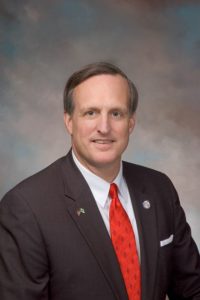
RICHMOND – House Republicans are echoing national GOP rhetoric in rejecting the Medicaid expansion strongly backed by Democratic Gov. Terry McAuliffe.
Delegate James Massie, R-Richmond, said Obamacare could likely “implode.” Massie said he handles the “business side” of Medicaid reform.
“I would say (it’s not going) particularly well so far,” Massie said with a laugh. “My opinion is if you think Obamacare was hard signing up for on the website … wait till you try to use it.”
Massie is a member on the Medicaid Innovation and Reform Commission, the committee tasked with reviewing and recommending reform proposals affecting the Virginia Medicaid and Family Access to Medical Insurance Security programs.
Massie said federal government inefficiencies lead to fraud and waste, which compromise up to 30 percent of its budget — a statistic he says he believes would increase if Medicaid is expanded in Virginia.
“If we do anything in the state of Virginia,” Massie said, “it’s going to look like private options. In other words, we’re going to take the money from the federal government that will allow these uncovered people to buy their own health insurance.”
Massie said Medicaid is abused because people go to the doctor with their Medicaid cards, and let the doctors do whatever needs to be done:
“I have no equity in the decision — no financial incentive to do the right thing, on controlling what you do to me, how much of it that you do, what it costs — much less, my health — taking care of my own self,” Massie said.
Massie also said studying other states could help the MIRC decide how to react to Medicaid expansion in McAuliffe’s budget proposals.
Arkansas and Iowa, for example, have not gone along with the government management of Medicaid expansion. Those states instead offer a “taxpayer recovery fund” that is supposed to grant federal money to the uninsured so they can afford to pay into private insurance plans.
Sen. John Watkins, R-Midlothian, proposed a similar taxpayer recovery fund, calling it a “pro-business, common sense solution.”
Massie said he was not familiar with the specifics of Watkins’ proposal.
The split in opinion hinges on a disagreement of whether or not to take any federal funds, which must be debated once a House budget is proposed.
Speaker of the House William Howell, R-Fredericksburg, said Watkins’ proposal — which still has not passed the finance committee — is Obamacare’s Medicaid expansion by another name.
“Medicaid and Obamacare expansion are poisonous words,” Massie said. “So (Watkins is) messing with the semantics, or he’s trying to get the right semantics right to create a pass.”
Massie said “private market incentives” will prevent the public from abusing the healthcare system.
“(People) are going to have to pay some money for the coverage,” Massie said. “They’re going to have co-pays. They’re going to have rewards for healthy living. They’re going to have work requirements — and work search requirements.”
Massie says the Republican Party’s proposal will incentivize the public to make healthy choices and good business decisions when choosing insurance.
“Not just ‘I don’t care. I go in. Give me everything,” Massie said, “because it doesn’t cost me anything.’”
A House budget must be produced containing each proposal to be debated against McAuliffe’s submitted budget plan.
Massie said the MIRC is looking for “the Virginia way.”
“If we find ‘the Virginia way,’” Massie said, “it’s going to look a whole lot more like private market insurance, rather than Medicaid.”
Watkins did not respond to requests for comment.
This story appeared in The Virginia Free Citizen.
Grant Would Fund Active-Shooter Training
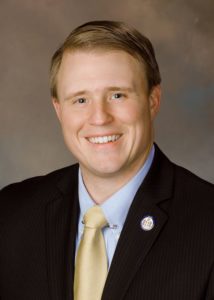
RICHMOND – A bill is advancing through the House that would grant “active shooter” training funds to smaller police forces, which currently have no budget to accommodate the over-time pay to prepare for mass shootings.
Delegate Mike Webert, R-Marshall, said the Fauquier County Sheriff Department recently integrated an active shooter program. To do so, he said the department brought in experts from Fairfax, which has a larger police force. “(Fairfax) has one of the best task forces in the nation,” Webert said. “A lot of their guys end up training our smaller localities. So, we want to be able to provide our localities with the tools to help keep our children safe.”
Webert said the initial training cost Fauquier County money that was not in the police budget, which is why he introduced legislation calling for a $500,000 training grant. His bill would grant funding up to $50,000 per locality to provide overtime pay for police officers to be trained to respond in the event of a shooting.
Lt. James Hartman, of the Fauquier County Sheriff Department, said his department is “very much in favor of the bill and (supports) it 100 percent.”
Hartman said it is obvious the active shooter and training grant fund is needed in jurisdictions like Fauquier County. He described his department as “too small to be big, and too big to be small,” adding that the force has about 125 sworn officers covering patrols and stationed in schools. Hartman said overtime pay for active-shooter training exceeds the police budget. He said over-time costs between $16,000–$17,000 for each training session and consists of about 22 officers.
The training covers response tactics leading to the neutralization of an active shooter. Usually, Hartman said, his department will go into a school when students are out and stage a simulation using actors. County schools even have color-coded doors so officers easily can communicate their locations from within a building. Although his department trains for the first critical minutes of a public school incident, Hartman said “active shooter” applies to more than just school shootings. “Active shooter incidents across the country mainly have just been in schools,” he said. “But we’ve also seen active shooters in workplaces, such as the Navy Yard shooter (and) movie theaters.”
Hartman said his department already has conducted four training sessions and had a fifth planned in January.
Chief John Venuti of the VCU Police Department would not discuss specific training. “The VCU Police Department provides active shooter training to the campus community,” Venuti stated in an email. “We do not discuss specific information pertaining to training, technology or tactics.”
Webert said he hopes to convince the appropriations committee to create a grant from the currently unappropriated federal fund, which he said is about $15 million.
This story appeared in RVA News and Emporia News.
Trial Date Set For McDonnells
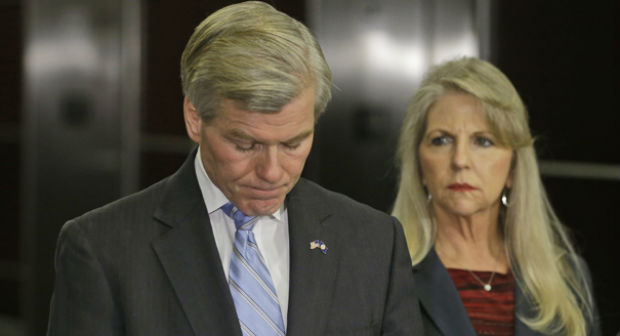
RICHMOND — A trial date has been set for former Gov. Robert F. McDonnell and his wife Maureen for July 28, following a Friday arraignment at a Richmond federal courthouse. Both pleaded not guilty to all 14 charges.
Federal authorities say the McDonnells repeatedly asked Johnnie Williams, a Richmond-area businessman, for loans and gifts totaling more than $165,000. The 43-page indictment alleges the McDonnells asked for money, clothes, golf fees, equipment, numerous trips and private jet rides in exchange for access to political clout.
Prosecutors allege that McDonnell helped promote Anatabloc, the company’s new product. The indictment states McDonnell pitched Anatabloc during an official meeting March 2012 with the secretary of administration in which they would discuss the state employee health plan.
“[Robert McDonnell] pulled some Anatabloc out of his pocket,” the indictment states, “and told the secretary of administration and one of her staff members that Anatabloc had beneficial health effects, that he personally took Anatabloc and that it was working well for him.”
The indictment states Maureen McDonnell traveled with Star Scientific in October 2011, speaking favorably of the product at corporate functions.
The report states that under Virginia. law, certain state officials and employees – including the governor and members of his staff – are required to annually file a standardized disclosure statement of their personal economic interests on or before Jan. 15 each year.
The indictment describes specific charges against Maureen, stating she intentionally avoided annual reporting requirements by transferring a total of 5,000 Star Scientific shares into newly opened brokerage accounts in the names of her five children.
“[Maureen McDonnell] further informed the broker that these transfers had to occur before year-end in order to avoid reporting requirements related to the ownership of Star Scientific stock,” the report states.
Federal documents state Williams took Maureen on an April 2011 shopping spree in New York City, in exchange for a seat beside McDonnell at a political event. The document states Williams spent about $10,999 at Oscar de la Renta, $5,685 at Louis Vuitton and $2,604 at Bergdorf Goodman, and later sat next to the governor.
According to the indictment, Williams sought independent studies in July 2011 to lend credibility to Star Scientific’s new product, Anatabloc. But when he approached the Tobacco Commission – a state research institution – it refused to fund the research as requested by a for-profit entity.
Among the gifts listed in the indictment was a custom Rolex watch inscribed with the words “71st Governor of Virginia.” Maureen McDonnell met privately with Williams to discuss ways the state could research Star Scientific’s Anatabloc. The indictment alleges Maureen complimented Williams’ watch, and asked him to purchase a similar watch she could give to her husband. Williams purchased the watch. On the same day Williams asked what she wanted inscribed on the watch, Maureen scheduled herself to attend an Aug. 30 luncheon with state researchers.
Text messages from 2012 between Bob McDonnell and Williams appear throughout the document, discussing share prices of Star Scientific.
“Good announcements lately,” McDonnell told Williams in a text, according to prosecutors. “Stock looks good. Hope all is well. You and [Williams’ wife] enjoy the 4th of July.”
In a text message sent to McDonnell, Williams reassured McDonnell that Star Scientific shares were continuing in a favorable trend.
McDonnell denied helping Williams in a public address this past week, and said he has done nothing illegal; adding that his behavior is characteristic of many elected officials in his position.
“I will use every available resource and advocate that I have,” McDonnell said, “for as long as it takes to fight and prevail against these false allegations and the unjust overreach of the federal government.”
Judge David Novak said Friday the McDonnell case will be tried in the courtroom and will not be tried in the media and ordered attorneys on both sides not to comment publicly on the case.
“The gamesmanship with the media ends now,” Novak said.
This story appeared in Virginia News Feed, Virginia Business, The Suffolk News-Herald, Northern VA Times, The Centreville Independent, Williamsburg Yorktown Daily, Emporia News, Gazette.net, The News Journal, and AltDaily.
Privacy Concerns Table Search, Seizure Bill

RICHMOND — A bill that would give Virginia police power to search private computers without a secondary search warrant was tabled after a committee determined the bill’s language failed to protect Fourth Amendment rights.
According to Delegate Mike Webert, R-Marshall, who is chief patron of the bill, the purpose of the bill “is not more money and power.”
Webert said his bill was meant to “streamline the process” of searching through a citizen’s computer, by eliminating the need for two warrants.
“A lot of times, what will happen is somebody (police) will go, and they will confiscate a computer looking for child porn – then they need to go and get another search warrant to search inside the computer,” Webert said. “We just wanted to streamline the process so that they (police) could go ahead and look into the computer.”
The bill first became problematic when it was written to include entire public networks or households, which would have enabled immediate searches upon seizure of any number of personal computers in a household.
After narrowing down the bill’s language to apply only to the personal computers of a certain individual, the House criminal law subcommittee determined there still were Fourth Amendment problems, which only can be addressed during the 2015 session, once the language is changed again.
“It has nothing to do with giving (police) more power,” Webert said in a mid-January interview. “It has nothing to do with that.”
He later said he highly doubts state police would have requested the bill with the intention of subverting Fourth Amendment rights.
However, Lt. James Hartman of the Fauquier County Sheriff Department said the bill would “absolutely” give police more power to investigate computers.
Hartman said the legislation would afford his department new powers to solve computer crimes including fraud and embezzlement, but “first and foremost,” he said the legislation would expedite police power to prosecute crimes against children, such as child sex abuse.
“We don’t have a computer lab here at Fauquier,” Hartman said, “so we almost always rely on partners in jurisdictions next door, and other counties to help with these examinations.”
The bill went before the Joint Commission on Technology and Science in December, which addressed Fourth Amendment and privacy issues. Present at the discussions were state police, the commonwealth’s attorney, prosecutors, the attorney general’s representatives and representatives from AOL, Facebook and Google.
Webert said he understands the corporations represented are known to be complicit with Fourth Amendment rights violations. He said the language of the bill changed dramatically after the corporate reps expressed privacy concerns.
The bill originally was requested of the McDonnell administration by the state police, said Delegate Kenneth R. Plum, D-Reston, as a means for expediting investigations into computer crime by removing the need for a secondary warrant to search a computer. Currently, probable cause must be established to obtain both warrants.
“It (the bill) dealt with a very practical problem they (police) had,” Plum said. “They sometimes needed to take it (a computer) to some place other than where they may originally have taken it for a warrant, and that was simply because I think the technology support they need, they don’t have every place in the state.”
Virginia already sends guns and drugs to labs without a second warrant, and Webert said computers are different. He said he wanted the language to reflect that
“To get gun particles off of a gun that had been fired doesn’t need a second search warrant,” he said. “Whereas computers – due to the new digital age – it’s the same but different.”
Webert said he wants to help police catch child pornographers, who keep illegal images on their computers. He said there were magistrates who complained about needing a secondary warrant to search through files on a suspect’s computer.
However, Webert also said he could not recall any specific case in which a magistrate said the procurement of a secondary search warrant became problematic to an investigation.
The resolution was to narrow the bill’s terminology to individual users on a given network and not to include the network of an entire business or household, Webert said.
“The language originally had ‘network,’” Webert said, “and (when) other people (are) using a network, there’s risk of invading their privacy.”
This story appeared in The Southwest Times and The Virginia Free Citizen.






